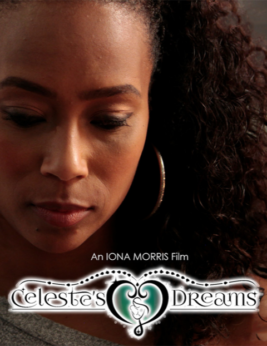
 Undaunted, the pandemic can’t stop the Pan African Film Festival, and in that immortal show biz tradition, the show must go on! Albeit virtually, as this year in order to stay cinematically safe, America’s largest and best annual Black-themed filmfest since 1992 has moved online. This year’s 29th annual Pan African Virtual Film + Arts Festival kicked off on the last day of Black History Month and runs through March 14.
Undaunted, the pandemic can’t stop the Pan African Film Festival, and in that immortal show biz tradition, the show must go on! Albeit virtually, as this year in order to stay cinematically safe, America’s largest and best annual Black-themed filmfest since 1992 has moved online. This year’s 29th annual Pan African Virtual Film + Arts Festival kicked off on the last day of Black History Month and runs through March 14.
Like love, film is a many splendored thing for PAFF. This unique filmfest screens productions in various formats and mediums—including features, documentaries, studio blockbusters like Coming 2 America, indies, and animation—and also in a variety of lengths. The common thread PAFF weaves is a tapestry of works regarding the Black experience, from Timbuktu to Papua New Guinea to the Caribbean to L.A. and beyond, by and about Blacks. And often PAFF presents films that Angeleno moviegoers may never otherwise have an opportunity to view (and gives them a foothold in a world movie capital). So thanks to PAFF, I was able to behold two worthy short films.
Celeste’s Dream: Good grief!
 I was especially keen to see Celeste’s Dreams, the brainchild of writer/director Iona Morris. An actress with a cornucopia of credits and a stage director of renown, Morris’s film directorial debut didn’t disappoint. Which is all to be expected because Iona is a child of Hollywood royalty—her father, the great Greg Morris, co-starred as agent Barney Collier in the beloved, long-running Mission Impossible TV series. As a member of the original Impossible Missions Force, Greg took on and accomplished a mission more impossible than most of those cracked by the I.M.F.: Integrating network television with an intelligent Black character (Barney was a tech wiz) as early as 1966 while the Civil Rights movement roiled racist America.
I was especially keen to see Celeste’s Dreams, the brainchild of writer/director Iona Morris. An actress with a cornucopia of credits and a stage director of renown, Morris’s film directorial debut didn’t disappoint. Which is all to be expected because Iona is a child of Hollywood royalty—her father, the great Greg Morris, co-starred as agent Barney Collier in the beloved, long-running Mission Impossible TV series. As a member of the original Impossible Missions Force, Greg took on and accomplished a mission more impossible than most of those cracked by the I.M.F.: Integrating network television with an intelligent Black character (Barney was a tech wiz) as early as 1966 while the Civil Rights movement roiled racist America.
In the interests of full disclosure, I should add that about a decade ago Iona took over the reins of a hip hop stage musical that I wrote the book (but not the rollicking music or lovely lyrics) for. Iona whipped the cast and show into shape and we took Still Standing to Switzerland, where it received standing ovations wherever it was performed. In addition to marveling at Iona and the truly admirable work she rendered directing Still Standing, I’ve also reviewed plays that Iona wrote, directed, and/or acted in, including the sexy Moist! and on the other end of the life spectrum from eros, a drama about Thanatos, Holding On—Letting Go.
Like the latter, Celeste’s Dream revolves around the theme of death and how to cope with it when the Grim Reaper proverbially rears his ugly (albeit cowled) head. Cameo Sherrell doesn’t have a cameo in this short—indeed, she rather ably depicts the lead character, Marie, who is devastated by the untimely early death of her mother. Iona’s story confronts head on what is widely considered to be taboo in the Black community. As Black psychologist Dr. Monnica T. Williams put it in a 2011 article in Psychology Today:
“African Americans shy away from psychotherapy as a potential solution to challenges such as depression, anxiety, post-traumatic stress disorder, marriage problems, and parenting issues.”
Paralyzed and creatively blocked by her loss, Marie overcomes her resistance to being “therapitzed” and finally seeks the help that can only be provided by a trained, impartial mental health professional. Marie turns to Dr. Soji Spark (veteran actor Denise Dowse, whose big and little screen credits include the 2004 Ray Charles biopic Ray and recurring roles on HBO’s Insecure as Molly’s shrink, Dr. Rhonda Pine, and on the exciting, anti-CIA FX series Snowfall), whose grief counseling, full of insight and support, helps to bring Marie out of her crippling depression.
As an aside, regarding this purported taboo of Blacks vis-à-vis psychological counseling, it’s worth remembering that one of the world’s greatest theorists of decolonization and liberation was Martinique’s Frantz Fanon, who joined the freedom struggle against French domination in Algeria. Best known for his 1961 classic The Wretched of the Earth, it bears considering that Fanon was actually a psychiatrist who also penned 1952’s Black Skin, White Masks, a seminal study in the psychology of racism and colonialism.
Phil Morris—another member of Greg Morris’s show biz dynasty—portrays Marie’s concerned father. Like the rest of the cast, under his sister’s adept direction, Phil delivers a sensitive, solid performance. As the troubled Marie, Cameo Sherrell—whose extensive screen credits include recurring roles on the sitcom The Single Life and on the OWN network’s The Haves and Have Nots—shows herself to be an actress who does indeed have the talent to create a nuanced, complex character. Like Iona, she combines brains with beauty.
Iona draws on her deep background as an actor and theater director to skillfully tell her story and elicit meaningful, heartfelt characterizations from her cast. Some clever phone play bookends her script and there are flashbacks in Iona’s directorial debut, which reveals her courage in tackling a taboo head on. Hopefully, this thoughtful, gifted artist will have the opportunity to create in a more cinematic idiom and to expand her vision beyond an 18-minute short to a feature length movie and/or a longer TV format. If so, this fan will be the first in line to watch it. (For more information see here.
Joy & Jim: Big Apple cute meet
Rob Gordon Bralver and Greg Davis Jr.’s (aka Klarity) Joy & Jim, scripted by Hash Sesay, feels like a pilot for a TV series I’d enjoy seeing. The title seems to refer to François Truffaut’s 1962 French New Wave classic Jules and Jim about a ménage à trois (although this short is minus the triangle and tragedy). The story also has a sensibility that combines Spike Lee’s 1986 She’s Gotta Have It’s (and its more recent Netflix incarnation) comedic take on the love lives of urban Blacks in the Big City with Woody Allen’s loving odes to romance in an extremely glamorous version of a deracinated Manhattan. And while this film historian is at it, let’s add a soupçon of screwball comedy to this delicious cinematic stew.
Thankfully, Joy & Jim adds a heady dose of color (not to mention a more age-appropriate relationship) to Woody’s monochrome vision of New York as depicted in movies such as Annie Hall and Manhattan. Jim (Greg Davis Jr., who, according to IMDB.com, has been “a series regular for three seasons on TBS’ 10 Items or Less, had a recurring role on Lincoln Heights, and has guest starred on The Shield, CSI: New York,” etc.) is a striving (that is to say, broke ass) photographer who stumbles upon quirky aspiring model Joy (Lex Scott-Davis) in a Hollywood “cute meet” worthy of the 1989 romcom When Harry Met Sally….
The two youthful actors are extremely attractive and good fun to watch two-gether, as the audience ponders: “Hmm, will they, or won’t they?” (And you are likely to be hoping they “will”!) The filmmakers make excellent use of Manhattan’s splendid locations, including exquisite Central Park and breathtaking 59th Street Bridge views sure to make you feel groovy. I crossed that iconic bridge regularly while studying cinema in Manhattan’s “Silk Stocking District” on Park Avenue, and Central Park was Hunter College’s unofficial “campus.” I really enjoyed seeing these settings again which, like the short’s co-stars, are eye-candy to behold. This dazzling side of the Big Apple has a supporting role as a character in this extremely entertaining production. I suspect Bralver’s documentarian’s eye enhanced this sensibility (the docs he edited include 2013’s well-made Gore Vidal: The United States of Amnesia about an icon of American letters and of the Left).
As playfully played by Scott-Davis, the free-spirited, aptly named Joy emanates a delightful sense of joie de vivre. She is arguably in the screen tradition of blithe Black beauties exuding sensuality, from Josephine Baker to Nola Darling. The film is lighthearted, humorous, amorous and has a droll sex scene. The paired actors have great onscreen chemistry—previously both had appeared in the 2016 Toni Braxton biopic Unbreak My Heart, wherein Scott-Davis depicted the singer.
The half-hour-long Joy & Jim ends with an archetypal cliffhanger, leaving viewers such as yours truly wanting more, to find out what will happen to these engaging, lovable, somewhat kooky characters. Hopefully, the talents will land a series or perhaps a feature-length movie so we can, at long last, find out: Will they, or won’t they? I say, let’s hope they do! (For more info see here.
For more information about PAFF see here










